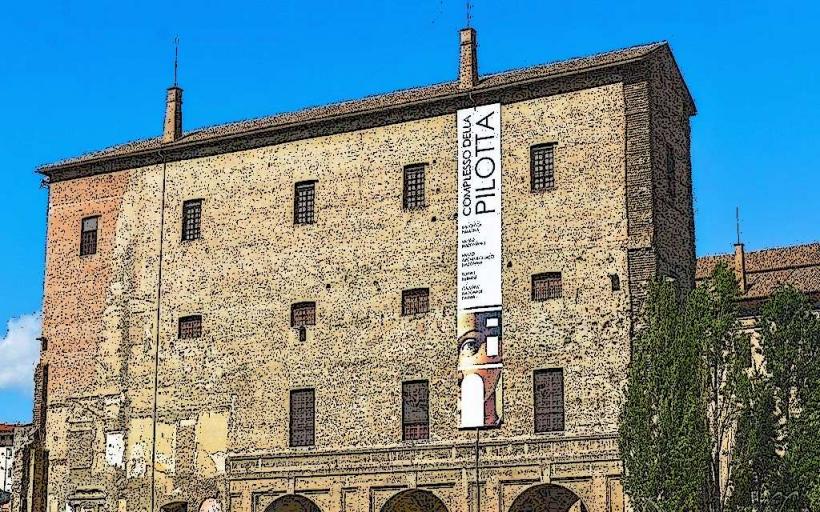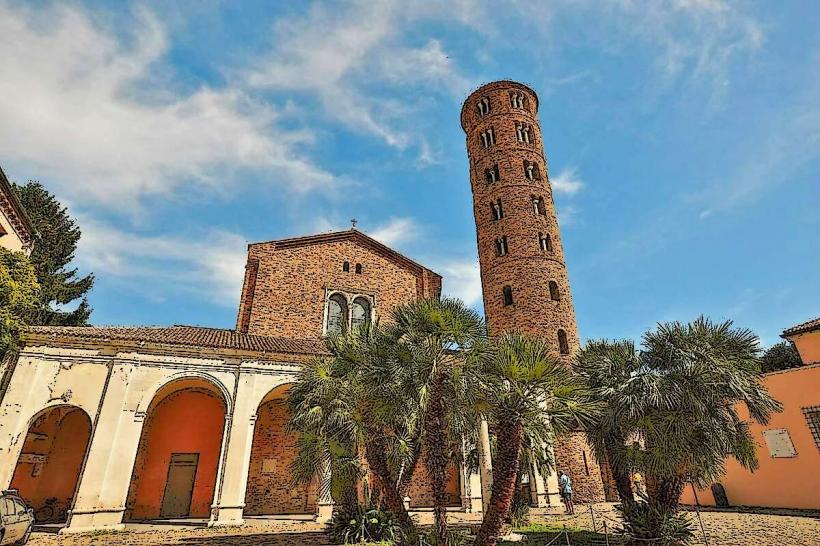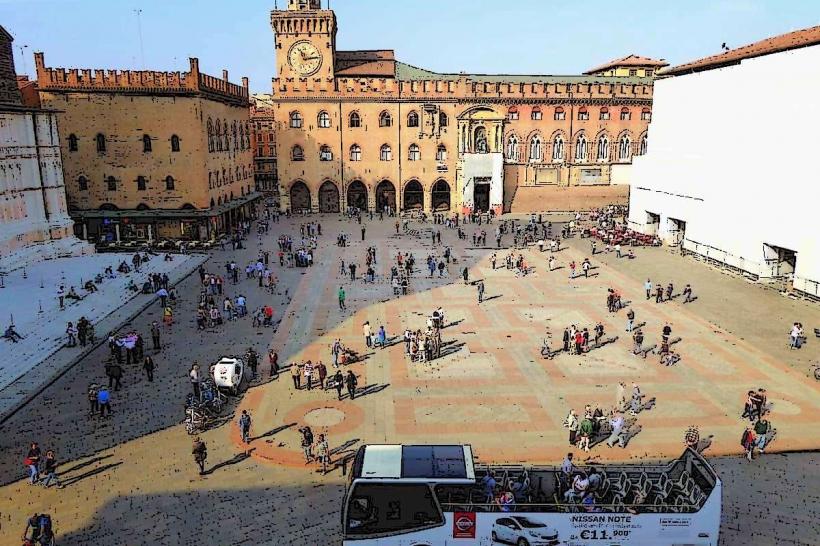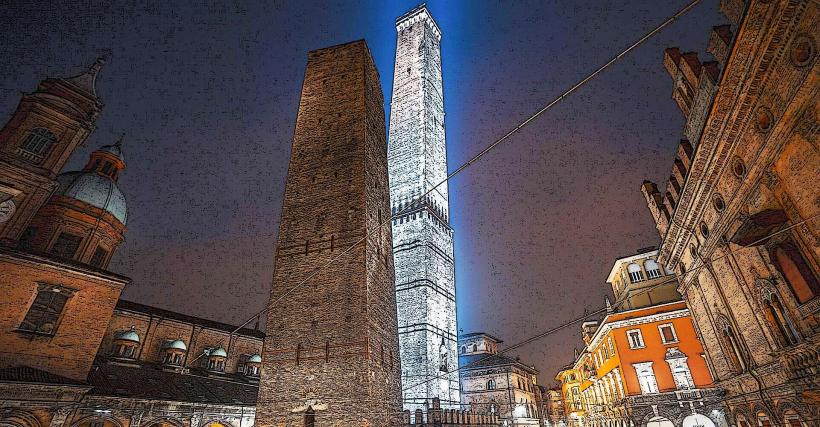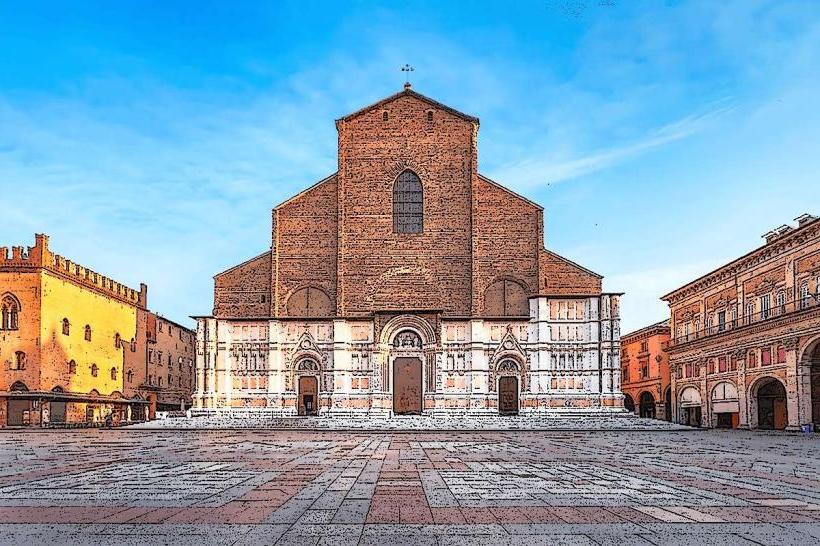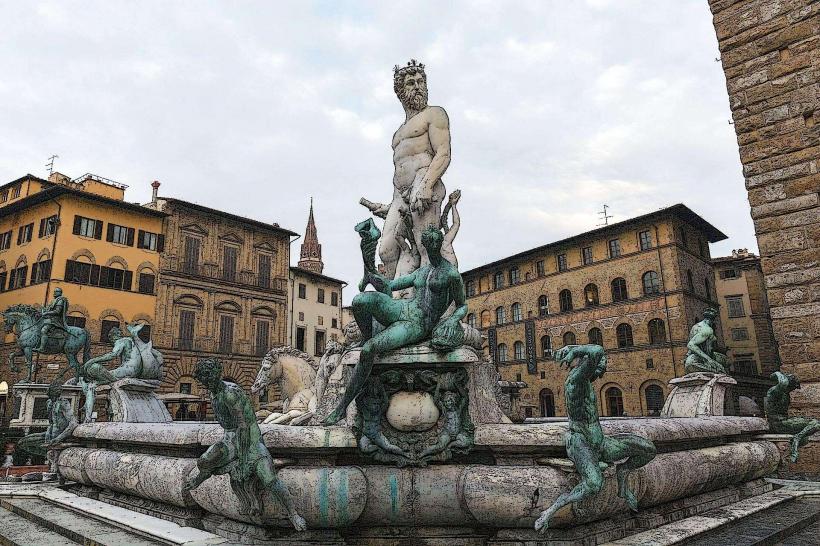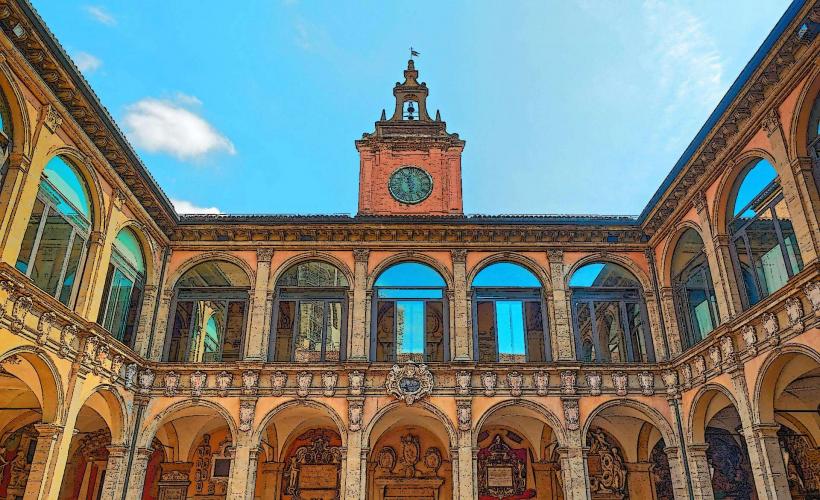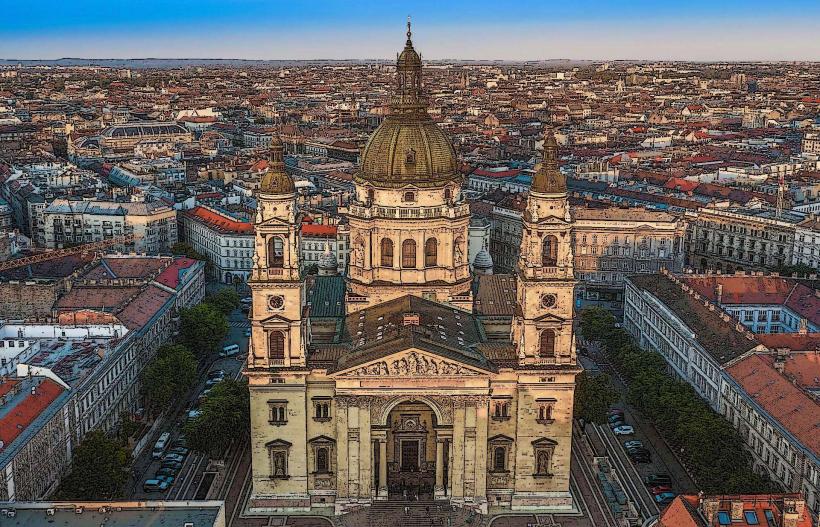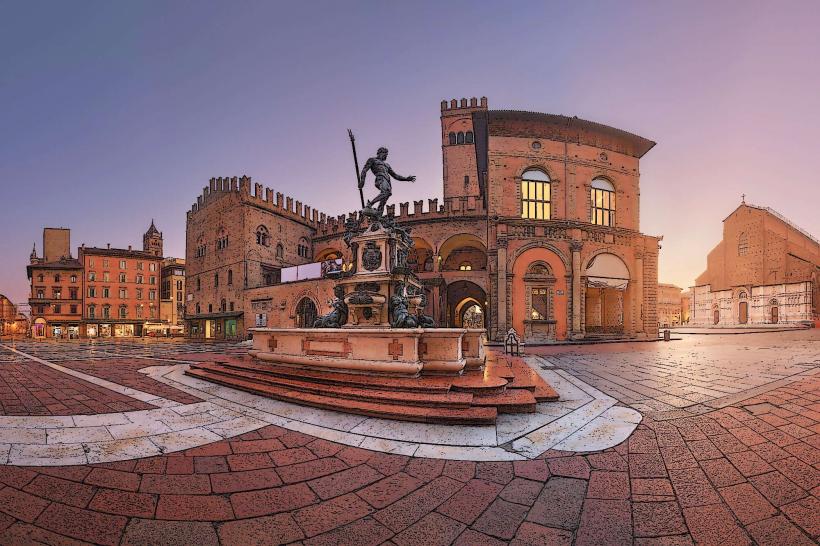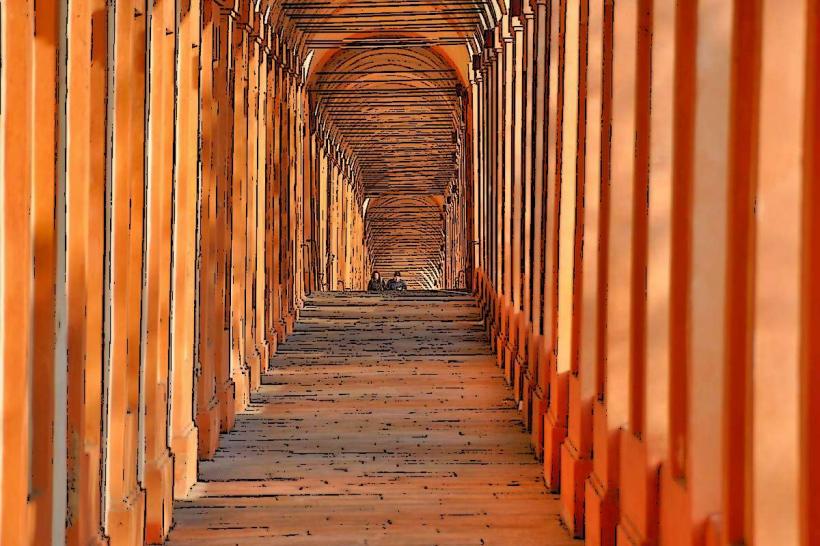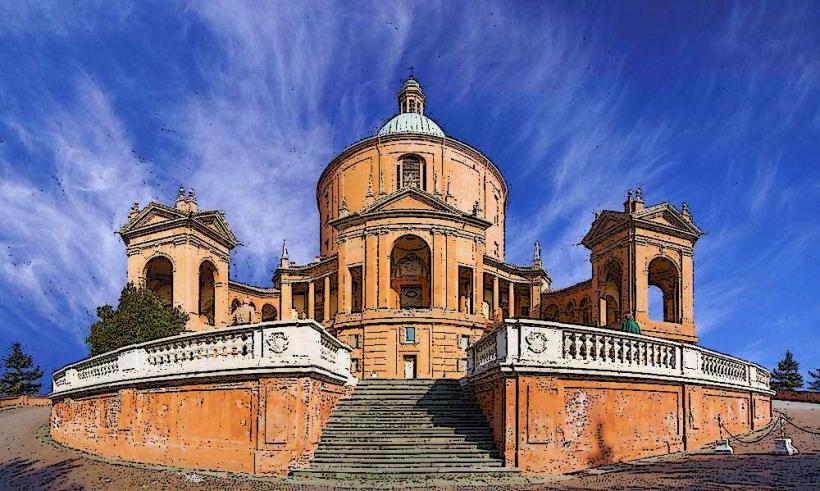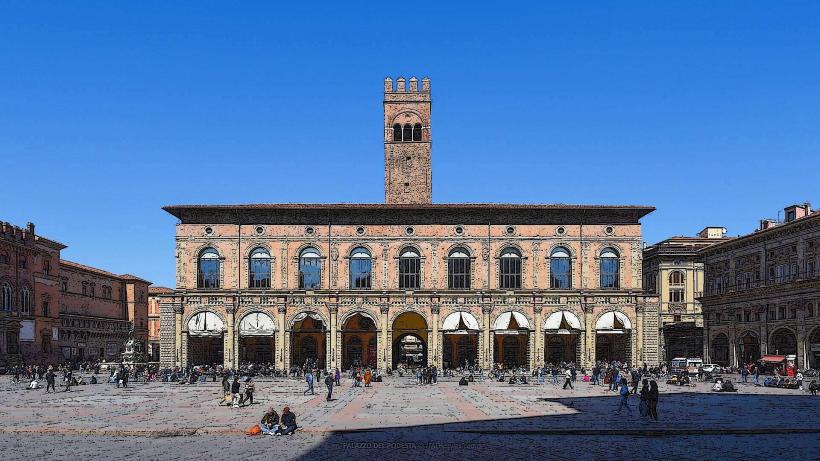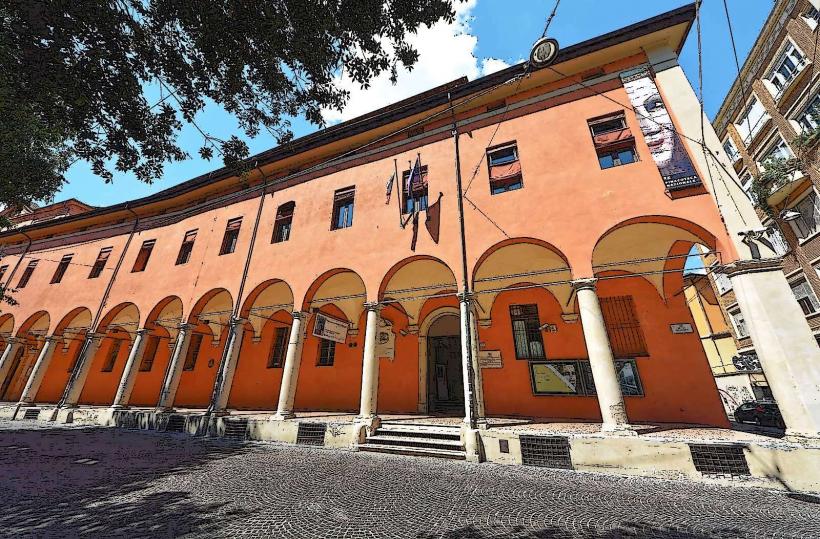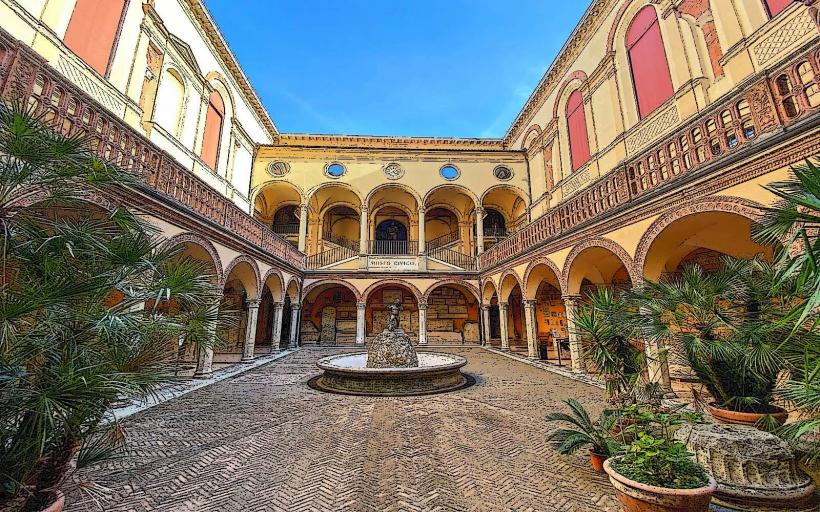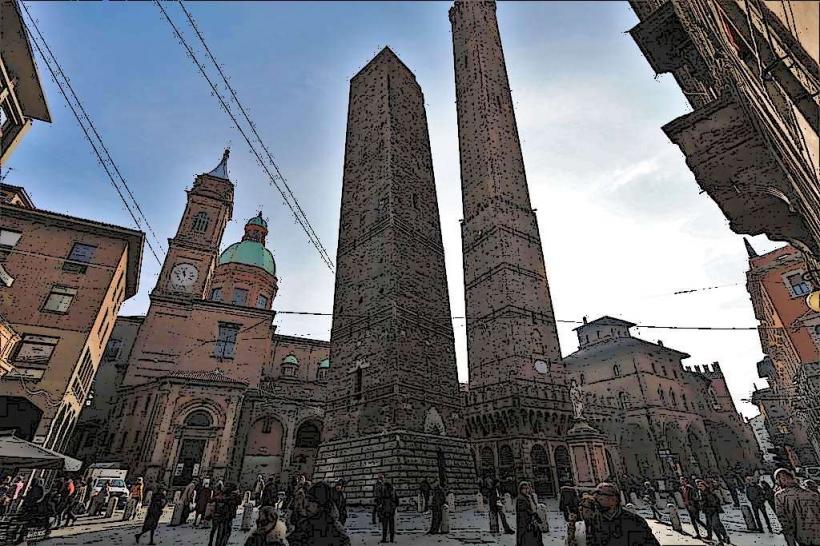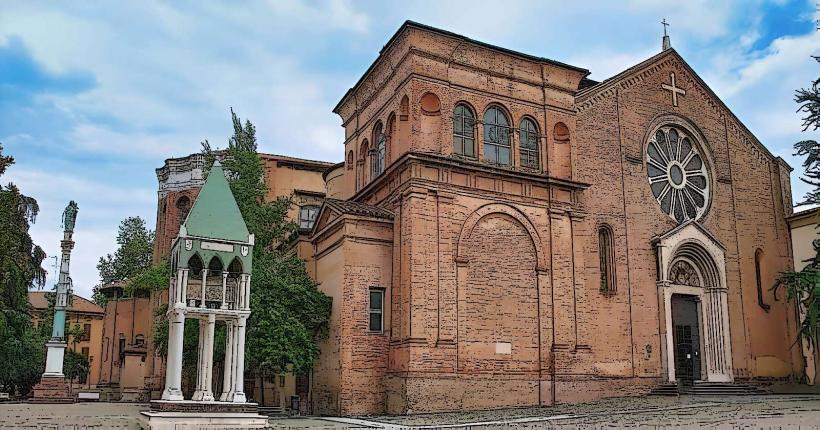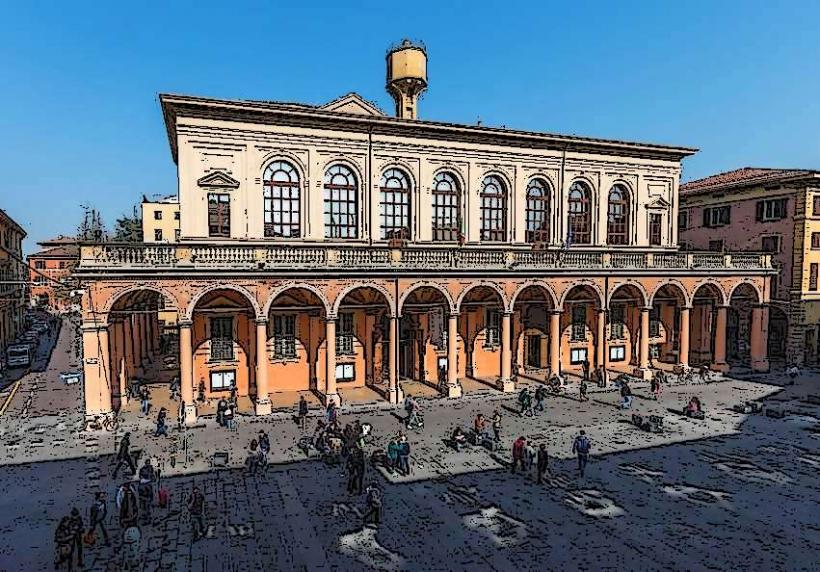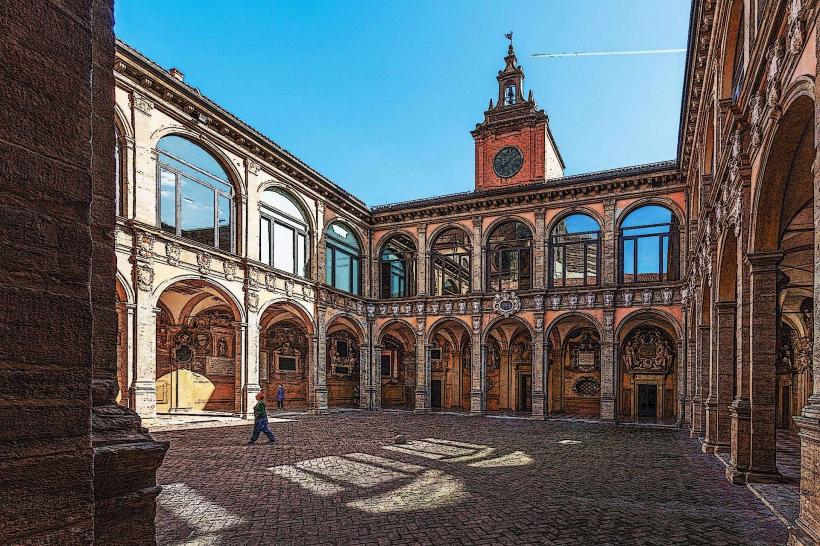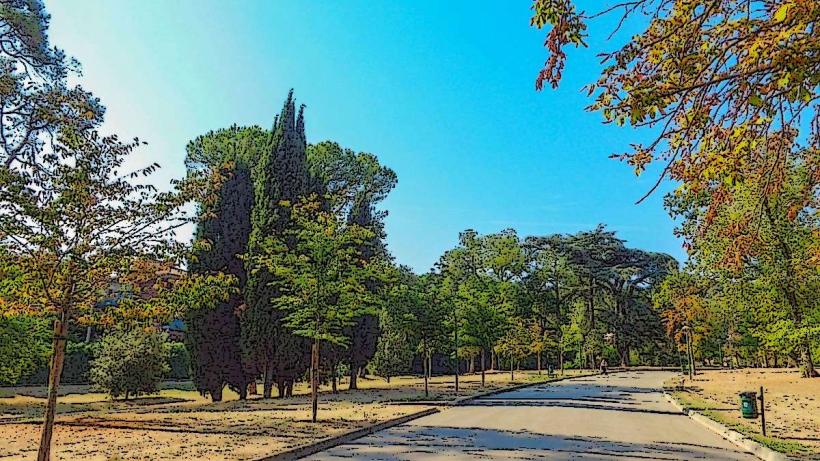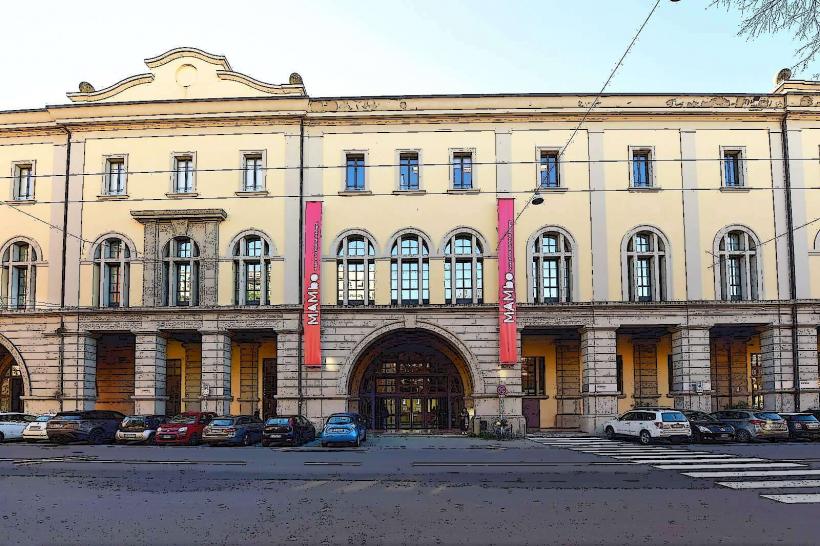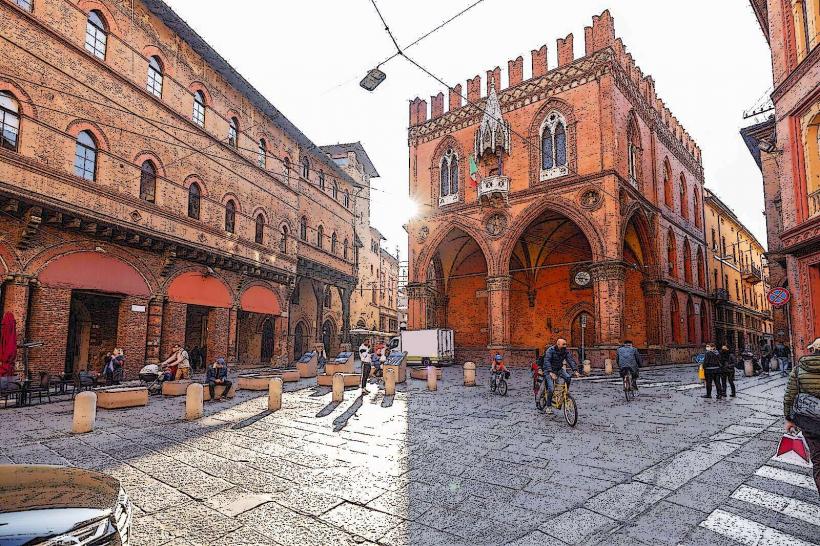Information
Landmark: Porta SaragozzaCity: Bologna
Country: Italy
Continent: Europe
Porta Saragozza, Bologna, Italy, Europe
Porta Saragozza is a monumental gate in Bologna's former third circuit of city walls. Historically known as the "Porta Sacra" or "Porta dei Pellegrini," it serves as the symbolic and functional starting point for the ascent to the Sanctuary of the Madonna di San Luca.
Visual Characteristics
The structure is characterized by its 19th-century Neo-Gothic restoration, which added two lateral circular towers and a connecting crenelated curtain wall to the original medieval core. Built primarily of red terracotta brick, it features a grand central archway. The architecture reflects the defensive utility of the 13th century integrated with the decorative civic pride of the 1800s.
Location & Access Logistics
Located at the intersection of Via Saragozza and the city's ring road (Viali), it is 2.5 kilometers southwest of Bologna Centrale station. Bus lines 20, 32, 33, and 38 provide direct access via the "Porta Saragozza" stop. The gate is outside the primary ZTL pedestrian zone, making it accessible by car, with blue-line paid parking available along the adjacent Viale Aldini.
Historical & Ecological Origin
The original gate was constructed in the 13th century as part of the "Circla" (the final set of city walls). It underwent significant reconstruction in 1859 by architect Enrico Brunetti Rodati. The gate stands at the base of the Colle della Guardia foothills, where the urban terrain begins its transition into the clay-heavy soils of the Apennine slopes.
Key Highlights & Activities
The gate houses the Museo della Beata Vergine di San Luca, which documents the history of the sanctuary and the annual procession. It marks the beginning of the world’s longest portico (3.8 km), a primary route for hikers and pilgrims. Visitors can observe the transition from urban architecture to the rhythmic arches of the San Luca portico immediately passing through the gate heading south.
Infrastructure & Amenities
The surrounding area is well-equipped with public benches, 5G cellular coverage, and several historic cafes. Public restrooms are available in the nearby Villa Spada park (1 km away) or within the museum during opening hours. The gate itself provides immediate shelter from rain and serves as a natural meeting point for pedestrians.
Best Time to Visit
The exterior is best photographed in the late afternoon when the sun illuminates the western facade. The gate is accessible 24 hours a day, while the internal museum typically operates on weekend schedules. It is a strategic starting point for morning walks toward San Luca to avoid midday heat.
Facts & Legends
The gate earned the name "Porta Sacra" because it is the only gate through which the icon of the Madonna di San Luca enters the city during the annual Ascension week festivities. A specific tip: the interior of the gate’s towers contains a spiral staircase leading to rooms that were once part of the city’s defensive watch system.
Nearby Landmarks
Portico di San Luca: 0.1km South
Villa Spada (Textile Museum): 0.9km Southwest
Stadio Renato Dall'Ara: 1.2km West
Piazza Maggiore: 1.5km Northeast
Basilica di San Domenico: 1.1km East

